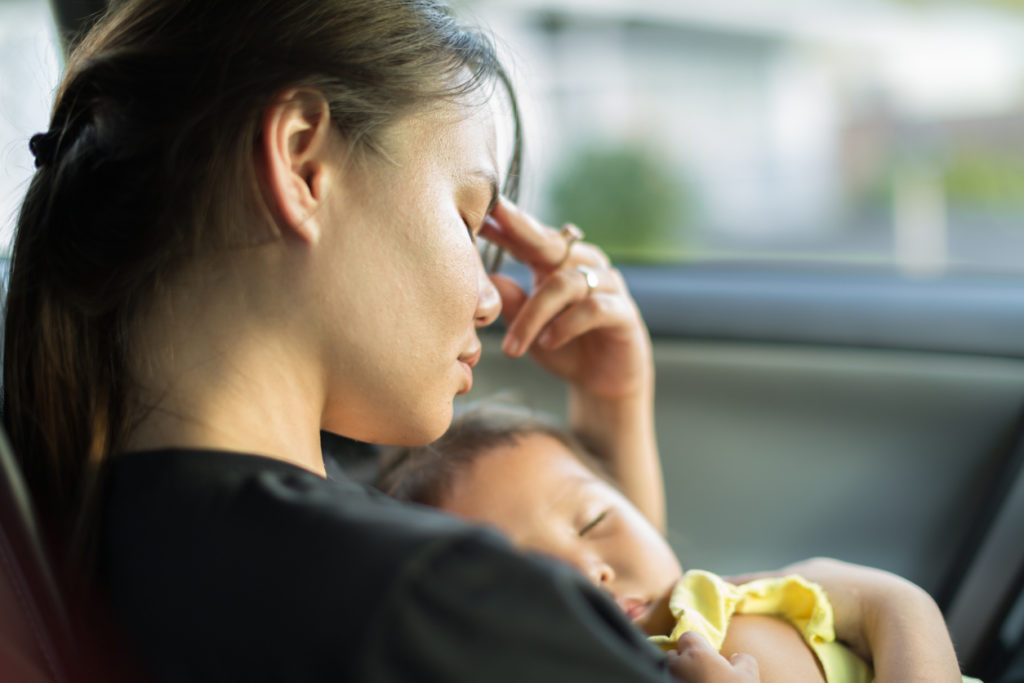The Day After – Coping With Depression

Depression. Anxiety. It is a hot topic this time of year. Recently, I had a conversation with my husband, Adam, about mental health. I admitted that the time of year was getting to me and I was feeling more down than usual. My seasonal depression was, right on time, kicking into high gear.
Now, this isn’t an unusual thing to talk about in our house. I have been public about my battles with postpartum depression since I was right in the thick of them. And, for me, postpartum depression and anxiety returned to the regular kind of depression and anxiety. For me, anxiety and depression are chronic conditions that will require lifetime care and maintenance.
And that’s okay.
But it means that we both check in regularly to make sure things stay on a somewhat even keel.
Now, as we had this conversation, he made a comment about how I had always been able to advocate for myself regarding my mental health. He was praising me, acknowledging the strength it takes to be vulnerable and open yourself to stigma and judgment that come with mental illness.
He’s right. I am a strong advocate for mental health. I have been for a lot of years. And I was persistent, and unbelievably brave, to have fought for access to mental health resources after the birth of our first baby.
But I shouldn’t have had to be strong. I shouldn’t have had to fight. Or beg. I shouldn’t need to be in crisis to get a helping hand.
So today, after the last tweets have been tweeted, the numbers tallied and announced, and the rest of the country goes back to pretending mental illness is something that happens to other people, where does that leave the rest of us? What do we do on the day after?
If you are one of the 1 in 3 Canadians who will experience a mental illness in their lifetime, you know that one day doesn’t change the landscape of mental health care in this country or province.
If you are one of the 25-40% new parents who will experience an antenatal mental health disorder, you know that waitlists for services are long and in the meantime, you are white-knuckling it every day.
So what do you do in the limbo between seeking help and receiving it? What resources are there to draw on?
Social Resources:
Although there are days when it feels impossible to get out of bed, there may be days when you could use a chance to be around other people. Finding a group of likeminded parents, whose babies are of a similar age, can help to reduce the feelings of isolation. Toronto has many amazing options including structured programs, annual memberships, drop-in groups, and more.
MomHALO
This group of down-to-earth Millennial moms is an annual membership group with lots of in-person meet-ups, a Facebook group, and a supportive What’s App group chat. You have to keep an eye out for when the HALO registrations open though!
Life With A Baby
A large community making a huge impact on the landscape of maternal mental health, Life With A Baby is a go-to resource for many parents. With classes, workshops, and in-person meet-ups all across Ontario, Life With A Baby is a good place to find support.
Mommy Connections
This structured program runs with the same group of new moms for a set period of time. There are educators and experts who guide new parents through a variety of important topics. You will have a chance to bond with the other moms in your area with little ones the same age.
Private Therapy
 For those that have access and/or health benefits that cover counselling, private therapy can be an option to explore. While we do not have any specific psychologists or counsellors that we work with or recommend, we do have suggestions on what to look for:
For those that have access and/or health benefits that cover counselling, private therapy can be an option to explore. While we do not have any specific psychologists or counsellors that we work with or recommend, we do have suggestions on what to look for:
- Experience in maternal mental health
- Accessible to you on a consistent basis
- You feel comfortable with their approach to treatment
Self-Care
So we know that ‘self-care’ has almost become a meaningless buzzword these days. Spa days, manicures, massages…those all take time and money. And if you are already feeling depressed or anxious, chances are that leaving the house is pretty close to the bottom of your priority list.
While there will definitely be a time where self-care can mean more indulgent activities, in the midst of everything you are going through, right now is not the right time.
So what can you do that might help?
Make Your Bed
We’ve all been there. The baby has been fussy, the toddler is sick, your partner is in the middle of their busiest work season, the house looks a bit like a bomb went off, and you just want to sit in the middle of all of it and cry. But studies have shown that making your bed actually increases happiness. It can also create a sense of tidiness and order if things are a bit chaotic elsewhere.
Guided Meditation
Although meditation isn’t for everyone, studies have shown that it can be beneficial to those suffering anxiety and depression. Some of our favourites are:
Take 10
Take 10 minutes. Drink your coffee while it is hot, take a shower or just dry shampoo your hair. Eat a chocolate bar before the toddler hears the crinkle of the wrapper and comes running. Whatever small activity will give you a boost, do it. And plan to have what you need for this! If you know that a sheet mask from the drug store makes you feel special, have a stack on hand so that you have one when you need it.
Talk to a Friend
You aren’t alone. People love you. You are a friend, a person, a partner, and a professional, in addition to being a parent. Reach out to your out support network, even if they aren’t a “parent support network”. Becoming a mom didn’t mean you stopped being you.
Learn Something New
Meaghan learned how to knit while on maternity leave. Others have taken a course, read the books that have been sitting on the bookshelf for ages, or tried new recipes. Find something to learn that has absolutely nothing to do with pregnancy, babies, or parenting. Something for yourself.
Depression Lies

Antenatal mood disorders are disruptive and destructive. It can feel like you are at the bottom of a pit, with no way to reach the top. Depression lies. It makes you believe that you aren't strong, you aren't capable, and that you are alone. But you aren't. There is a light at the end of the tunnel.
If you are experiencing a mental health crisis, please call 911 or the Distress Centres of Toronto at 408-HELP.
